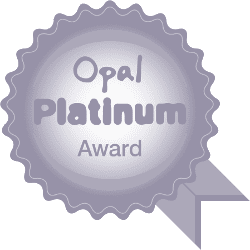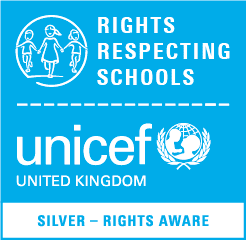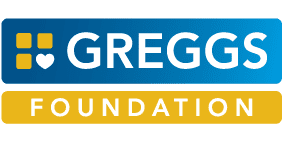Most children and young people in mainstream schools will have their special educational needs met through good classroom practice. This is called Quality First Teaching.
Early Identification of Need
In deciding whether to make special education provision to support educational, social, physical or emotional needs, we assess each pupil’s current skills and attainment on entry, which will build on previous settings and Key Stages, where appropriate. Class teachers will make regular assessments of progress for all pupils and identify those whose progress:
- Is significantly slower than that of their peers starting from the same baseline
- Fails to match or better the child’s previous rate of progress
- Fails to close the attainment gap between the child and their peers
- Widens the attainment gap
This may include progress in areas other than attainment, for example, social needs. Slow progress and low attainment will not automatically mean a pupil is recorded as having SEN.
When deciding whether special educational provision is required, we will start with the desired outcomes, including the expected progress and attainment, and the views and the wishes of the pupil and their parents. We will use this to determine the support that is needed and whether we can provide it by adapting our core offer, or whether something different or additional is needed.
We will have an early discussion with the pupil and their parents when identifying whether they need special educational provision. These conversations will make sure that:
- Everyone develops a good understanding of the pupil’s areas of strength and difficulty
- We take into account the parents’ concerns
- Everyone understands the agreed outcomes sought for the child
- Everyone is clear on what the next steps are
A ‘Short Note’ of these early discussions will be added to the pupil’s record.
We will formally notify parents when it is decided that a pupil will receive SEN support.
We offer an open door policy where parents are welcome any time to make an appointment to meet with class teachers, the SENCO, Deputy Head or Head Teacher and discuss how their child is progressing. Parents can contact members of staff through the school office: eshwinning@durham.gov.uk or 0191 373 4701.
Planned arrangements for communicating between school and home include:
- Each year group has two parents’ evenings a year, when all class teachers are available to meet with parents and discuss their child’s progress and learning.
- Every child receives an annual written report, which is sent home to parents in the summer term.
- If a child has an Education, Health and Care Plan (EHCP), then there is a legal requirement for at least one formal Annual Review meeting each year, which is organised by the SENCO and attended by parents, teachers and outside agencies involved in the pupil’s education
SEN Support
Where a pupil is identified as having a special educational need we follow a graduated approach which takes the form of cycles of “Assess, Plan, Do, Review”.
There are two levels of SEND support; targeted supported and specialist support. Targeted support is initiated when a child or young person has received quality first teaching (QFT) but has not made expected progress and requires additional support in school. The adaptations and additions that are made as part of targeted support are internal to the school. If targeted support is not sufficient to meet the child or young person’s needs they will require specialist support involving external agencies.
We will follow the graduated approach and the four-part cycle of assess, plan, do, review. This is an ongoing cycle to enable the provision to be refined and revised as the understanding of the needs of the pupil grows. This cycle enables identification of those interventions which are most effective in supporting the pupil to achieve good levels of progress and outcomes.
Assess
This involves clearly analysing the pupil’s need using the class teachers’ assessment and experience of working with the pupil, details of previous progress and attainment, comparisons with peers and national data, as well as the views and experience of the parents and pupil. Advice from external support services and staff will be sought if appropriate and with the agreement of the parents.
Plan
Planning will involve consultation between the teacher, SENCO and parents to agree the adjustments, interventions and support that are required; the impact on progress, development and/ or behaviour that is expected and a clear date for review. Parental involvement may be sought, where appropriate, to reinforce or contribute to progress at home. This plan with be recorded in the form of a Support Plan document which will be shared with staff, parents and the pupil, where appropriate.
Do
The class teacher remains responsible for working with the child on a day to day basis. They will retain responsibility even where the interventions may involve group or one to one teaching away from the main class teacher. They will work closely with teaching assistants to plan and assess the impact of support and interventions and ensure links with classroom teaching. The SENCO will support with further assessment of the pupils strengths and weaknesses.
Review
Reviews of a child’s progress will be made regularly. The review process will evaluate the impact and quality of the support and interventions. It will also take account of the views of the pupil and their parents. The class teacher, in conjunction with the SENCO, will revise the support outcomes and based upon the pupils progress and development make any necessary amendments going forward, in consultation with parents and pupils.
We will make all teachers and support staff who work with the pupil aware of their needs, the outcomes sought, the support in place and/or to be provided, and any teaching strategies or approaches that are required. We will regularly review the effectiveness of the support and interventions and their impact on the pupil’s progress.
Pupil Support Plans
Children identified as needing SEN support will have a Support Plan, which highlights their area/s of need. Parents are invited to comment on their child’s learning and the pupil will also have their input.
Support Plans will also include a ‘Provision Support Map’ which clearly shows what additional educational provision has been put into place. Records of specific interventions are kept as part of the Support Plan and Class Teachers and Teaching Assistants have regular liaison about the progress each individual child is making within these sessions in order to ensure they are focused and specific to each child’s needs.
During intervention sessions, pupils will be involved in assessing their own progress against their targets. Progress within the identified area/s of intervention will form the basis of Support Plan reviews.
Pupil Support Plan Reviews
Parents will be offered opportunities to review their child’s support. Each review will consider:
- Any changes required to provision, including increased or reduced intensity and frequency of support.
- The need for increased or decreased expertise from outside agencies.
- Where sufficient progress has been made and whether ongoing additional support is required and what form that support might take.
- Where progress has not been made, the need for further assessment to determine the appropriate level of support going forward.
Where a child continues to make little or no progress, despite well-founded support that is matched to the child’s area/s of need, we will consider involving specialists, including those from outside agencies. Parents will always be involved in any decision to involve specialists. The involvement of specialists and what was discussed or agreed will be recorded and shared with the parent and teaching staff supporting the child.
A Support Plan will include:
- Three or four short term outcomes
- Provision to be put in place
- When the provision will be provided and by who
- Date of review
- Aspirations of the child
- Strengths of the child
- Outcomes dated when achieved
In a very small number of cases, where pupils have received ongoing additional support over a period of time, yet continue to make less than expected progress, consideration will be given to requesting an assessment by the Local Authority for an Education, Health and Care (EHC) plan. This will occur where the complexity of need or lack of clarity around the need of the child are such that a multi-agency approach to assessing that need, to planning the provision and identifying resources is required.
The decision to make a referral for an Education, Health and Care plan will be taken at a progress review.
The application for an Education, Health and Care Plan will combine information from a variety of sources including:
- Parents
- Teachers
- SENCO
- Social Care
- Health Professionals
Information will be gathered relating to the current provision provided, action that has been taken, and the preliminary outcomes of targets set. A decision will be made by a group of people co-ordinated by Durham Local Authority (including professionals from education, health and social care) about whether or not the child is eligible for an EHC Plan. Parents have the right to appeal against a decision made by the Education, Health and Care panel.
For more detailed information see the Local Offer
For further information please view or download our Accessibility Plan which can be found in the School Policies section of our website.








![Music-Mark-logo-school-right-[RGB]](https://eshwinning.durham.sch.uk/wp-content/uploads/2021/05/Music-Mark-logo-school-right-RGB-1.png)
